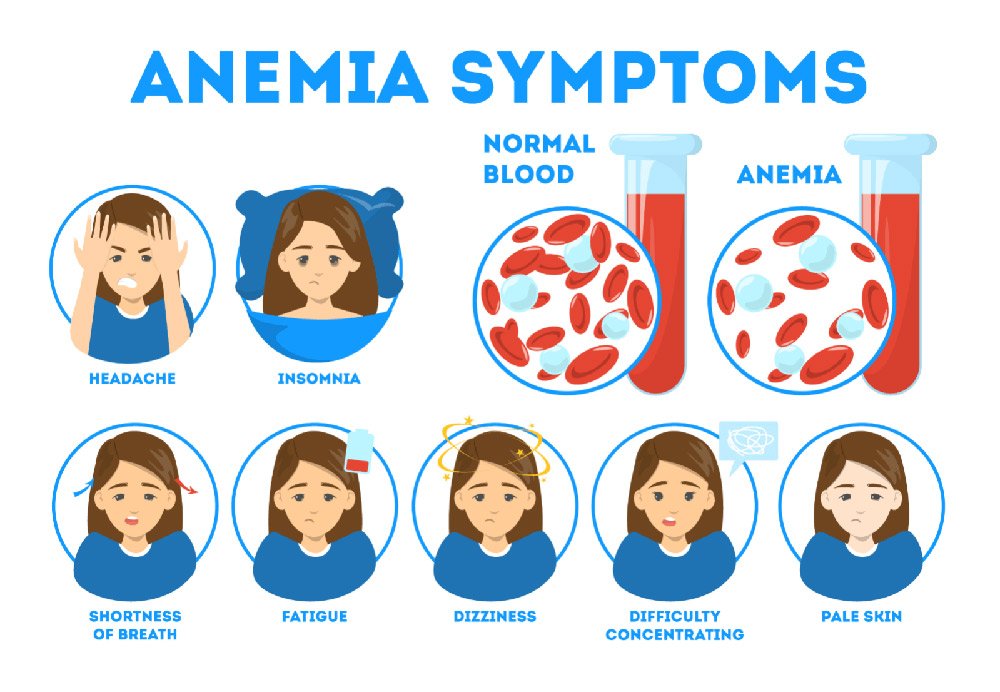
Iron deficiency anemia is a common condition where your body doesn’t have enough iron to produce adequate healthy red blood cells. Since iron is essential for carrying oxygen throughout the body, a lack of it can lead to fatigue, weakness, and other health issues. Understanding the causes, symptoms, and treatment options can help you manage this condition effectively.
Causes of Iron Deficiency Anemia
Iron deficiency anemia can develop due to several factors, including:
- Insufficient Iron Intake: Not eating enough iron-rich foods like red meat, beans, or leafy greens.
- Blood Loss: Heavy menstrual periods, gastrointestinal bleeding, ulcers, or injury can cause significant blood loss.
- Poor Absorption: Conditions such as celiac disease or surgeries that affect the stomach or intestines can reduce iron absorption.
- Increased Need: Pregnancy, breastfeeding, or growth spurts increase the body’s demand for iron.
Symptoms of Iron Deficiency Anemia
The symptoms of iron deficiency anemia may develop slowly and can include:
- Fatigue and weakness
- Pale or yellowish skin
- Shortness of breath
- Dizziness or lightheadedness
- Cold hands and feet
- Headaches
- Chest pain or rapid heartbeat (in severe cases)
- Brittle nails and hair loss
- Cravings for non-food items like ice or dirt (a condition called pica)
What to Do Next
If you suspect you have iron deficiency anemia, consider the following steps:
- Consult Your Healthcare Provider: A doctor can perform blood tests to confirm the diagnosis and identify underlying causes.
- Dietary Changes: Incorporate iron-rich foods such as red meat, poultry, fish, lentils, beans, tofu, spinach, and fortified cereals.
- Iron Supplements: Your doctor may recommend iron supplements to restore iron levels more quickly. Take supplements as directed to avoid side effects.
- Treat Underlying Conditions: Address any causes like bleeding or absorption issues with your healthcare provider.
- Follow Up: Regular blood tests may be needed to monitor your iron levels and response to treatment.
Final Thoughts
Iron deficiency anemia is manageable and often preventable with the right approach. Paying attention to symptoms and seeking timely medical advice ensures better health outcomes. If you experience symptoms or are at risk, talk to your healthcare provider about screening and treatment options.


